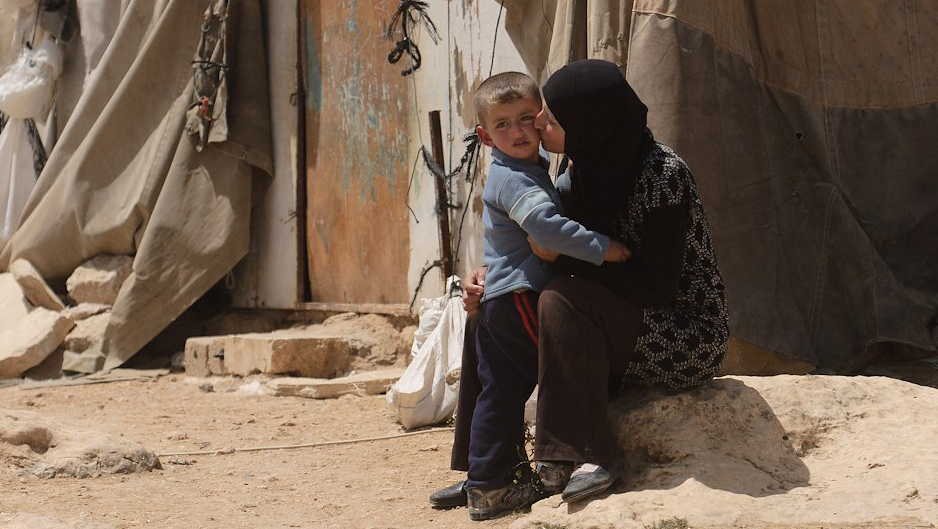The Israeli apartheid regime’s blockade of Gaza has produced a “a human-made humanitarian catastrophe” for the two million Palestinians living in the region, according to a new human rights report published on June 15. The report details the ways in which “Israel’s draconian, stifling closure of Gaza” has worsened socioeconomic conditions. The blockade, alongside the COVID-19 pandemic and the brutal May 2021 attack on Gaza, have deteriorated Gaza’s healthcare system. The report reveals how the restrictions on mobility imposed by the apartheid regime inhibit Palestinians’ access to necessary healthcare procedures and treatments that are not available in Gaza itself.
Authored by the Al Mezan Center for Human Rights and Medical Aid for Palestinians (MAP), the report assesses the right to healthcare in the strip, fifteen years after the impositions of the blockade. MAP, a British charity, recently ended its financial support for the Palestinian NGO Health Work Committees (HWC). According to David Verstockt, a member of the thematic circle on War, Conflict and Health within the People’s Health Movement (PHM), HWC has “lost so many donors, and thus funding, due to the continuous harassment, intimidation, lawfare,” which has contributed to cancellation of several of its community health programs. Verstockt underscores the importance of this context when “mapping the impact of Israeli repression on Palestinian healthcare.”
Before the blockade, the Israeli state for decades imposed a policy of “collective punishment” over Gaza, a part of historic Palestine that has been under Israeli control ever since it was captured from Egypt in the 1967 war. In the late 1980s, as a result of the First Intifada, Israel established a permit system, which made it increasingly difficult for Gazans to enter other parts of the occupied Palestinian terrorities (oPt). In 2005, ten years after building a fence and wall around the strip, Israel conducted its so-called “disengagement” from Gaza, withdrawing illegal settlements from the region, but isolating it from the rest of the world. Ever since 2007, after Hamas gained control of the Gaza strip, Israel has maintained a brutal land, air, and sea blockade over the region, earning Gaza the title of an “open-air prison”.
In addition to its blatant failure to uphold International Human Rights Law (IHRL) in Gaza, the Al Mezan report reveals that Israel is also responsible for violating various elements of binding International Humanitarian Law (IHL), failing to meet responsibilities required of an occupying power. Despite Israel claiming that “disengagement” from Gaza signifies that the region is not occupied, the international community maintains that Israel has the legal obligations of an occupying power. According to the report, Israel is bound by several articles from the Fourth Geneva Convention, such as the requirement of “unimpeded access for wounded and sick individuals to healthcare” as outlined in Articles 17, 27, and 38, as well as the obligation of “ensuring and maintaining” medical services in the occupied territory, per Article 56.
Al Mezan’s report explains that these obligations contradict the blockade’s control over the mobility of people and goods in and out of Gaza, which prevents health professionals from attending trainings and other knowledge-sharing conferences outside of the strip, and also restricts access to medical equipment. According to the report, only 30% of the Palestinian Authority’s medical device import requests were approved for the year 2021.
Given the reality of an extremely limited and suppressed healthcare system, many professionals are forced to send patients outside of Gaza. Al Mezan reported that “a patient’s urgent need for medical attention, evidenced by their medical reports, is not by itself sufficient to obtain an Israeli exit permit.” In 2021, 36% of medical travel permits were either rejected, ignored, or delayed. In addition to the oppressive “permit regime,” it is not uncommon for Israeli authorities to arbitrarily arrest and detain Gazan patients and patient accompaniers. Al Mezan’s study reveals that the uncertainty surrounding access to healthcare is a direct cause of psychological stress and trauma for Palestinian patients in Gaza, who are forced to rely on Israeli authorities to access the basic right to health.
Al Mezan’s report reveals how ongoing, structural issues are compounded by recent events that put pressure on Gaza’s healthcare system, notably the pandemic and Israel’s May 2021 assault on Gaza. From shortages in oxygen, ICU beds, and testing, to exclusion from vaccination programs, the blockade is lethal for Palestinians in Gaza. Moreover, in May 2021, “an Israeli airstrike partially destroyed Al-Rimal Clinic, Gaza’s only laboratory for the processing of COVID-19 tests, and the administrative building of the Ministry of Health in Gaza.” This was one of many deliberate attacks against civilian centers, including medical facilities and roads, that have had lasting effects on Gaza’s health infrastructure.
According to health policy researcher Layth Hanbali, who is also part of the PHM’s War, Conflict and Health group, Al Mezan’s report “is an excellent resource documenting some of the important effects of Israel’s colonization of Palestine on the healthcare system in Gaza.” He specified, however, the report’s emphasis on the “care” in “healthcare,” rather than health itself, explaining that the report “does not address the reason behind Israel’s policies, which is the subjugation of Palestinians with the aim of [furthering] its colonial ambitions in Palestine.”
Al Mezan ends the report with a set of recommendations that urge the international community to pressure Israel to end the blockade and comply with international law obligations. The report calls on human rights organizations and international bodies to provide aid and legally intervene on behalf of Palestinian patients. To Hanbali, “apartheid, medical neglect, destruction of healthcare capacity, etc., are all just symptoms of settler colonialism.” Framing the situation as such, and engaging deeply with the “social, economic, and political determinants of health,” “would help place the healthcare situation in the broader political context locally and globally.”





